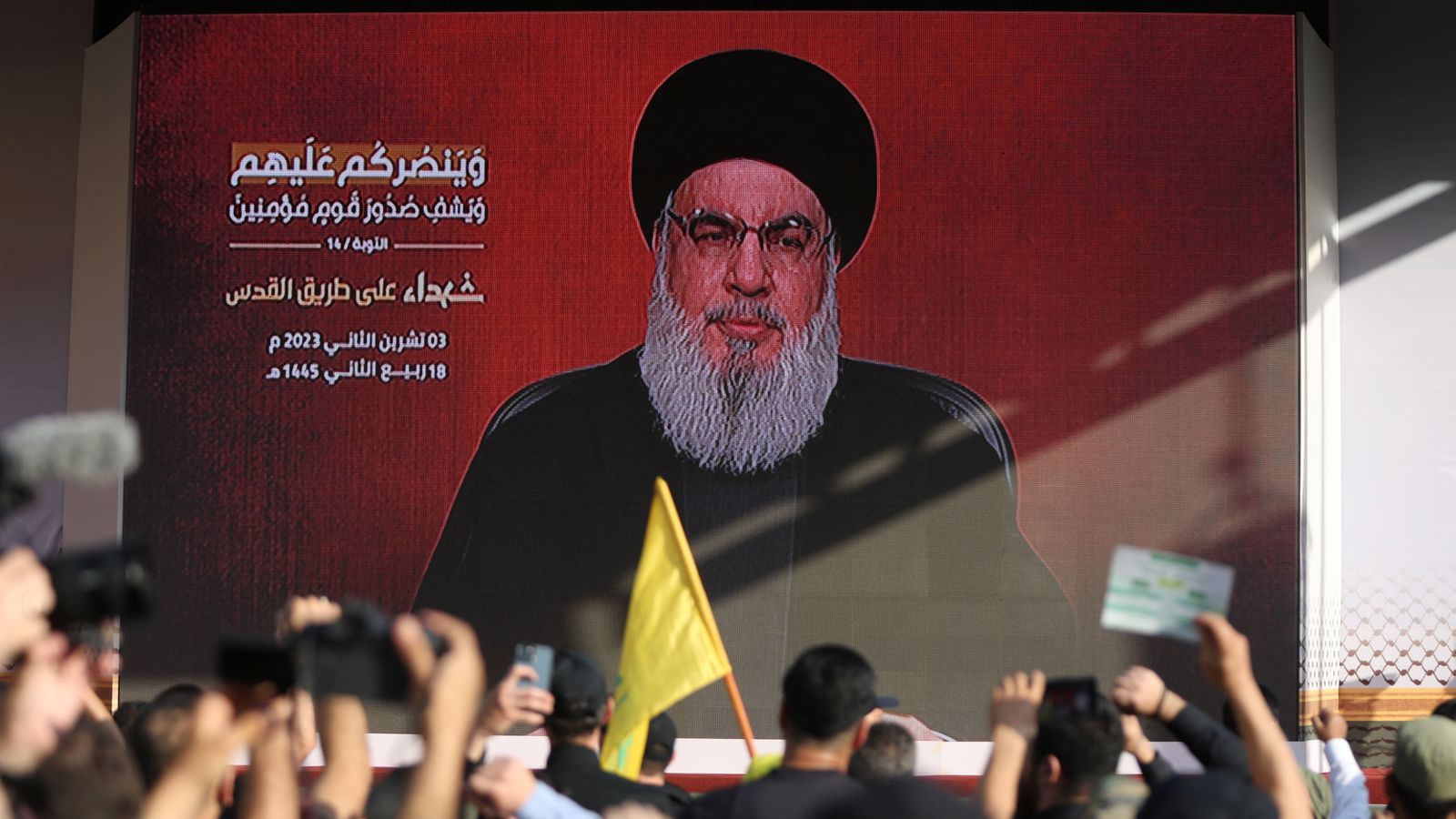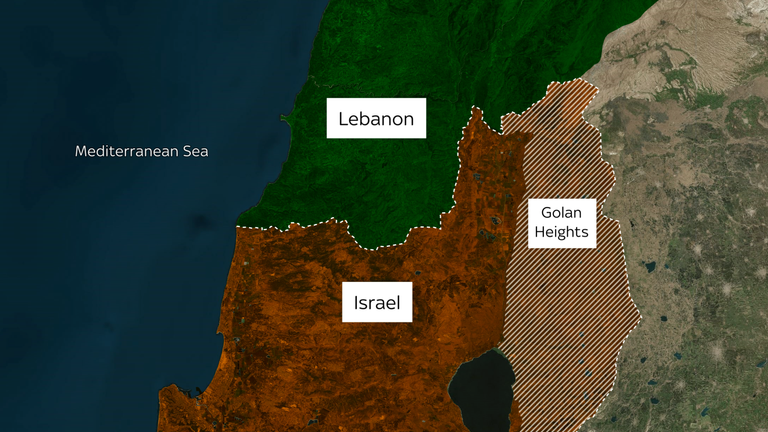The leader of Lebanon’s Hezbollah has warned of possible escalation as his militia engages in cross-border fighting with Israel.
In his first speech since the outbreak of the war, Hassan Nasrallah said all options on the Lebanese front were open and the group was “ready for all possibilities” – as well as for US warships.
“Your fleets in the Mediterranean… will not scare us,” he said of US military deployments in the region.
Nasrallah stopped short of announcing that Hezbollah was fully engaging in the Israel-Hamas war – but said the fighting on the Lebanon-Israel border would “not be limited” to the scale seen until now and that all options are “on the table”.
Follow live: Israel on ‘very, very high alert’ on Lebanon border
Other key developments:
• Blinken says ‘we need to do more to protect Palestinian civilians’
• Netanyahu tells Lebanon: “Don’t test us, you will pay dearly”
• Israeli military says it has ‘completed encirclement’ of Gaza City
• Scottish leader’s in-laws leave Gaza after ‘living nightmare’
Nasrallah denied any suggestion of Hezbollah involvement in the attack launched by Hamas against Israel on 7 October, saying it was “100% Palestinian”.
He also paid tribute to the Lebanese and Palestinian “martyrs” killed in the conflict.
“My brothers and sisters peace be upon you all,” he said. “We are here today to remember those who are models of Hezbollah.”
The speech was televised live across Beirut, with thousands gathering to watch it and celebratory gunshots ringing out over the capital.
Meanwhile, US Secretary of State Antony Blinken met Israeli Prime Minister Benjamin Netanyahu in Israel where he said their two countries need to “continue to prevent escalation of this conflict”.
He said during a news conference in Tel Aviv: “The United States has, and we will, continue to respond to attacks by Iran’s proxies to defend our personnel in the region, personnel who are here in Iraq and in Syria to help prevent the resurgence of ISIS. We will do what is necessary to deter and, as I said, respond to any attacks.”
Mr Blinken, who is in Israel for the third time since the conflict broke out, also accused Hamas of using people as human shields but said there is no reason for Palestinian civilians to “suffer” in Israel’s attacks on Gaza.
He said: “We’ve been clear that as Israel conducts its campaign to defeat Hamas, how it does so matters. It matters because it’s the right and lawful thing to do.
“It matters because failure to do so plays into the hands of Hamas and other terror groups.
“There will be no partners for peace if they’re consumed by humanitarian catastrophe and alienated by any perceived indifference to their plight.”
Mr Blinken said that when he sees images of Palestinian children “pulled from the wreckage of buildings” he sees his own children, adding: “How can we not?”
He went on to say that US President Joe Biden has “consistently stressed the need for Israel to operate according to international law”.
Mr Bliken also called for an increase in the “sustained flow of humanitarian assistance into Gaza”.
He said it was critical to restore the path toward a two-state solution to the Israel-Palestinian conflict, calling it the only “guarantor” of a safe and democratic Israel and independent Palestine.
He said work on that must begin “not tomorrow, not after today, but today.”
Meanwhile, Mr Netanyahu ruled out a temporary ceasefire in the Gaza Strip on Friday until hostages held by Hamas are released.
“I tell our enemies in the north, don’t test us, you will pay dearly,” he added.
Nasrallah is a leading voice in a regional military alliance established by Iran to counter the US and Israel, known as the “Axis of Resistance”.
His address comes after Hezbollah yesterday mounted what appeared to be its biggest attack on Israel so far.
It claimed to have launched 19 simultaneous strikes on Israeli army positions and used explosive drones for the first time.


